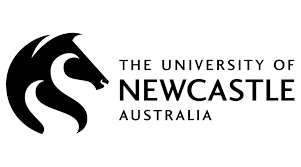University of Newcastle becomes first in Australia to achieve two Cygnet Awards
The University of Newcastle has become the first University in Australia to be awarded two Science in Australia Gender Equity (SAGE) Cygnet Awards, recognising its work to support academic and professional women.
A compilation of photos of women in STEM
To achieve a Cygnet Award, organisations must demonstrate their commitment to removing or reducing barriers to gender equity, diversity, and inclusion.
To achieve a Cygnet Award, organisations must demonstrate their commitment to removing or reducing barriers to gender equity, diversity, and inclusion.
The first Cygnet focused on career development support for women across the Institution and assessed the impact of leadership, mentoring, and support programs on the progression and retention of women and other underrepresented groups.
The second Cygnet focused on the impact of strategies including targeted female and targeted Indigenous recruitment and high-school outreach programs to improve the pipeline of female and under-represented students and staff for the College of Engineering, Science and Environment.
Vice-Chancellor Professor Alex Zelinsky AO commended the staff involved in achieving the two Cygnets.
“I am incredibly proud that our institution is the first in Australia to achieve this milestone, and even prouder of the collaboration across multiple teams that has delivered significant improvements to how we support the careers of our female staff and students.
“We know we’re a stronger and more successful University if we have a diverse and inclusive workforce and supporting women to reach their full potential is critical to ensuring that,” Professor Zelinsky said.
Dr Janin Bredehoeft, CEO of Science in Australia Gender Equity (SAGE) was excited about the value of the University of Newcastle’s work to the wider community.
“I am delighted that the University of Newcastle’s initiatives have led to more women and Indigenous people getting hired and promoted, but what stood out to me was the University’s analysis of what made these programs work and how they can be improved. I think other organisations will find these insights very useful for informing their own initiatives.”
Pro Vice-Chancellor Academic Excellence and Athena Swan Lead Professor Jennifer Milam commented that while there was still work to do to embed some of the initiatives further, she was pleased that SAGE had endorsed the progress the University has made to date.
“The impact of creating targeted strategies to reduce gender and intersectional barriers, to improve female and Indigenous participation, and to create clear plans for the career progression of underrepresented groups cannot be overestimated,” said Professor Milam.
“The work we are doing as part of the SAGE Cygnet Awards will embed the cultural change that is required to ensure that our female members of staff have confidence that the University of Newcastle can offer them a career path.”
Deputy Vice-Chancellor Academic Professor Mark Hoffman congratulated all involved.
“I am delighted we are able to meaningfully demonstrate our commitment to equity, diversity and inclusion to our students. The more barriers we remove, the brighter the future is for our University and future generations of women in higher education,” Professor Hoffman said.

